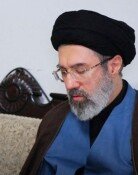Government’s harsh response and police’s collective actions
Government’s harsh response and police’s collective actions
Posted July. 26, 2022 08:10,
Updated July. 26, 2022 08:10
On Monday, Interior and Safety Minister Lee Sang-Min described the meeting of police chiefs held on Saturday as a coup, saying, “In military terms, such action is comparable to the 12·12 Coup d'état by Hanahoe (an unofficial private group of military officers of the past in South Korea headed by Chun Doo-wan, who later became the president of the country). Minister Lee also claimed that under the Civil Service Act, such action should be dealt by a criminal charge, not with a simple disciplinary measure. Yoon Hee-Keun, a candidate for new commissioner of the Korea National Police Agency, also stated that (the meeting) was in violation of the Service Regulations, and necessary measures will be taken following an inspector-general investigation. This shows how seriously the leadership of both the Interior and Safety Ministry and the Korea National Police Agency are willing to take the matter against the attendees of the meeting who have become subject for disciplinary actions and investigations, stirring the already heating pot across the law enforcement agency from the punishment even harder.
Accordingly, the backlashes from the police group are becoming even stronger. Mid-rank officers in senior inspector and inspector group are planning to hold a national meeting for police team leaders on Saturday, and they are discussing to include lower levels - chiefs of patrol divisions and police substations. The level of counteractions from the agency will be elevated once the lower-level officers follow suit of their leaders at the frontlines. Members of Police Occupational Council (POC) began staging one-person’s demonstrations to oppose the suspension order put against Ryu Sam-yeong, a senior superintend at Ulsan Jungbu Police Station who led the meeting, while also campaigning their cause to the general public. Both the leaderships and the frontline police officers are not showing any sign of compromise, and this may lead to prolonged ‘power to power’ confrontations.
The political circle, which is supposed to take the mediator’s role while exploring solutions in such situations, are not doing their job. Instead, they are adding fuel to the fire. Kwon Seong-dong, the acting representative of People Power Party (PPP) criticized the police officer’s resistance as “tantrum throwing of those who are getting a regular paycheck from the taxpayer’s money.” On the other hand, Rep. Park Beom-kye of the Democratic Party of Korea said, “If 20,000 police officers who are involved in the investigations all join resist together, the agency won’t be able to take disciplinary actions toward all of them,” as if inciting collective actions to the officers.
This serious situation across the police agency originated from the forceful push that has gone too far by the ministry to establish the so called “Police Bureau.” This move has been strongly challenged by the members of the police due to the possibility that it may compromise the neutrality of the law enforcement. Defining the meeting of high-ranking police officers to discuss such a matter as a “coup” is a groundless accusation and an inappropriate gesture by Interior and Safety Minster Lee, making the situation even worse by blocking a way out from the disputes for both sides. Prolonged confrontations between the government and the police may lead to blind spots during the work of securing public safety, and the people of the Republic of Korea will be the victim of such failure.
When the proposal to enact the enforcement degree on the “Police Bureau” is submitted to, and passed by the State Council on Tuesday, there will be barely a room left for negotiations. It is a high time to call for conversations between the parties, first by the government postponing their processing of the bill and the police officers refraining from taking any collective actions.







